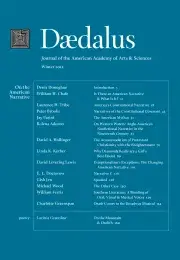The American Mythos
This essay examines the notion of an American narrative, looking at a variety of myths that have been prominent and that have, in various ways, shaped the concept of a nation devoted to Enlightenment and Anglo-Saxon ideals. These include liberty, equality, and justice, which can be traced to thinkers such as Montesquieu, as well as ideals laid out in the Magna Carta. These lofty ideals took the place of more traditional narratives and tribal alliances, and they helped establish a nation that had been formed by so many different immigrant strands. That these stories – going back to the Puritans landing on Plymouth Rock, for example – have been influential seems beyond question. Yet it remains difficult to assess their broader value in determining the course of a nation. How might these founding myths prove useful in refashioning the American stories in ways that, in the future, could be productive?
Every nation requires a story–or many stories, which taken together form a national narrative –about its origins, a self-defining mythos that says something about the character of the people and how they operate in the larger world and among each other. The strength of these stories lies in their shaping power, the ways they illumine aspects of a character or embody ideals that, in turn, affect individual or collective behavior. The stories themselves may have genuine factual content or, like the myth of George Washington cutting down the cherry tree and then refusing to lie about it, be wholly fabricated.
Rome famously drew on the legend of Romulus and Remus, its twin founders, who were children of gods but suckled by a she-wolf who found them in the wilderness. This tale, in its Ovidian complexity and mythic resonance, involved aspects of supernatural intervention and, therefore, divine destiny; it spoke to Roman ambitions, with their brutal self-confidence, their aura of centrality and mission. The feral vitality of that suckling by a she-wolf sufficed to drive this people forward, even to explain the transformation from republic to empire. . . .
